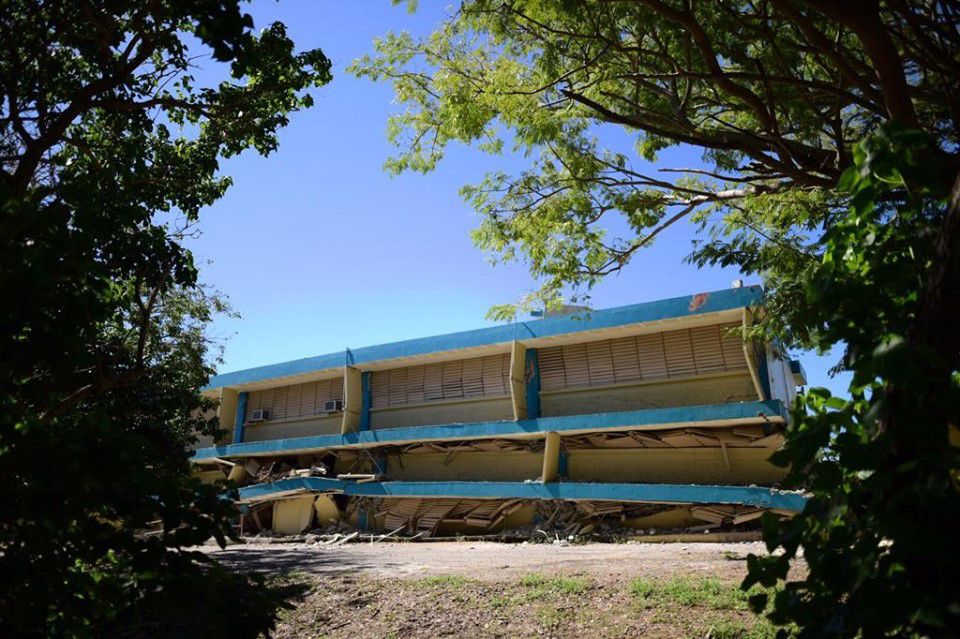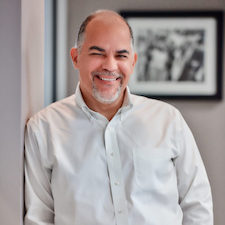
Published on January 16, 2019 / Leer en español
Dear friends,
Many of you have reached out over the past couple of weeks to see how we are faring at CNE after the recent earthquakes and to ask about contributing to our efforts.
First of all, I want to let you know that all at Team CNE are safe and working diligently despite the obvious anxiety that natural events like these provoke. The networks and leadership of the Puerto Rico Recovery Fund’s Distribution Centers were reactivated to coordinate and assist in the immediate relief of affected communities. We have also been actively supporting our partners at Send Relief as they provide thousands of hot meals to the increasing number of people displaced by the earthquake damage and living in shelters.


Our main focus, however, has been on leveraging our considerable networks and influence to marshal resources, policy and otherwise, to achieve long-lasting solutions to Puerto Rico’s most urgent problems.
Immediately after the first earthquakes, the CNE D.C. team contacted multiple congressional offices and shared an assessment of on-the-ground dynamics, serving as a communication link between the federal government and the people of Puerto Rico. In addition to providing information, CNE D.C. assisted in developing appropriate responses to the challenges that may emerge from unpredictable aftershocks or another significant disaster. The work has resulted in congressional pressure for the timely approval of a major disaster declaration, the release of withheld recovery funds, and a reconsideration of Puerto Rico’s fiscal plan. CNE reports have been cited by congressional offices in support of many of these efforts.
Furthermore, due to the complexity of the reconstruction process and current dire fiscal situation of the island, we amplified our communication capacities in order to provide key insights and analysis as a trusted independent source of information for the media, both local and international.
As it happens, just months earlier, we hosted a day-long conference for journalists in Puerto Rico on the reconstruction landscape. Appropriately enough, part of the event included a session on how journalists could cover another islandwide blackout. Little did we know the situation would so quickly reoccur.
In light of the current crisis, our Reimagina program has redoubled its efforts to ensure the implementation of its recommendations for Puerto Rico’s disaster management and reconstruction process. These recommendations were built on consensus and address the concerns of a wide range of stakeholders—including community leaders, scholars and professionals—and seek to guarantee a just and inclusive recovery for the island.
We have also determined to bring together many of our core policy proposals from our Blueprint Housing Program, our Black Start Energy Initiative and the ReImagina platform under a new framework we are calling Living with Risk.
Beyond preparing for and devising solutions to deal with different disasters, we seek to define a vision for “living with risk” in Puerto Rico across all of our research areas. This involves adopting a comprehensive understanding of risk that takes into account the complex interplay between hazards and vulnerabilities, recognizing that exposure to risk is not the same for everyone. This framework will guide us as we articulate policy recommendations, devise planning efforts and design projects on-the-ground.
We will highlight how these new ideas and proposals will contribute to Puerto Rico’s growth and reconstruction process in our Reconstruction Summit, which will take place this Spring.
With your support, we will to continue to deepen our role as a fundamental agent in the economic recovery and social transformation of our island. I invite you to become an active supporter of our efforts and Puerto Rico’s reconstruction.

Mike Soto-Class
President, Center for a New Economy

